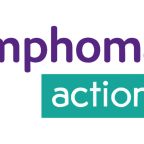
Young people fight the drainage problems of the future
It took seven weeks for The Sidmouth fatberg to be cleared after its discovery in December last year. The 64 metre mass of solid waste was a stark wake up call to residents in the Exeter area, prompting South Devon University Technical College to host an open evening for World Environment Day in June, during which prospective students were invited to ‘fight the fatberg’. The event promoted awareness of the problem with flushing unsuitable materials down the drain, and encouraged students to find scientific solutions to the fatberg problem.
The Fatberg Problem
Fatbergs form when sewage pipes clog with solid waste and fat. Masses of ‘unflushable’ waste, including cooking oil, sanitary products and wet wipes, build up and get caught on the pipes, growing in size as more waste passes through the system. Eventually, this results in sewers clogging and unsanitary waste spilling up above ground.
All components of the UK’s sewage system must come from suppliers like EasyMerchant who have Kitemarked products in stock that meet British Standards, but these regulations don’t change the fact that the sewage system is not equipped to deal with anything more than human waste, water and toilet tissue. When fats and other solid materials enter the system, there is a high risk that, over time, a fatberg will form, causing mass disruption and costing millions of pounds to remove.
Fighting the Fatberg
Prospective students at South Devon University Technical College in Newton Abbot learned about the fatberg problem, and were tasked with investigating a scientific solution. The students tried out the college’s science labs as they investigated the creation of a ‘sink-safe’ product designed to disintegrate in the sewage system, rather than passing through the network whole and contributing to a buildup of waste. The young people then presented their ideas, with the winner being invited to visit the Environment Agency at the National Laboratories. As well as promoting the college to potential students, the event challenged visitors to think about environmental issues and consider our impact on the environment through our use of single-use plastics and non-biodegradable waste.
Into The Future
It is public education that will prevent the risk of future fatbergs, and events like the college’s open day equip the younger generation with the knowledge they need to treat our environment responsibly. By experimenting with creating biodegradable waste, the students learned about the environmental impact of single-use plastics and the dangers of disposing of inappropriate waste in the drainage system. Those who follow their education down a scientific route could eventually be involved in developing environmentally friendly products for a more sustainable future, and at the very least, they will be part of a generation much more waste-conscious than their predecessors.
Educating young people in environmental issues and sparking an interest in sustainability will be key to tackling the challenges our environment faces. Fatbergs are an indicator of a much larger problem with society’s attitude to waste and single-use items, and it is hoped that the younger generation will be well-equipped to prevent further damage.




















